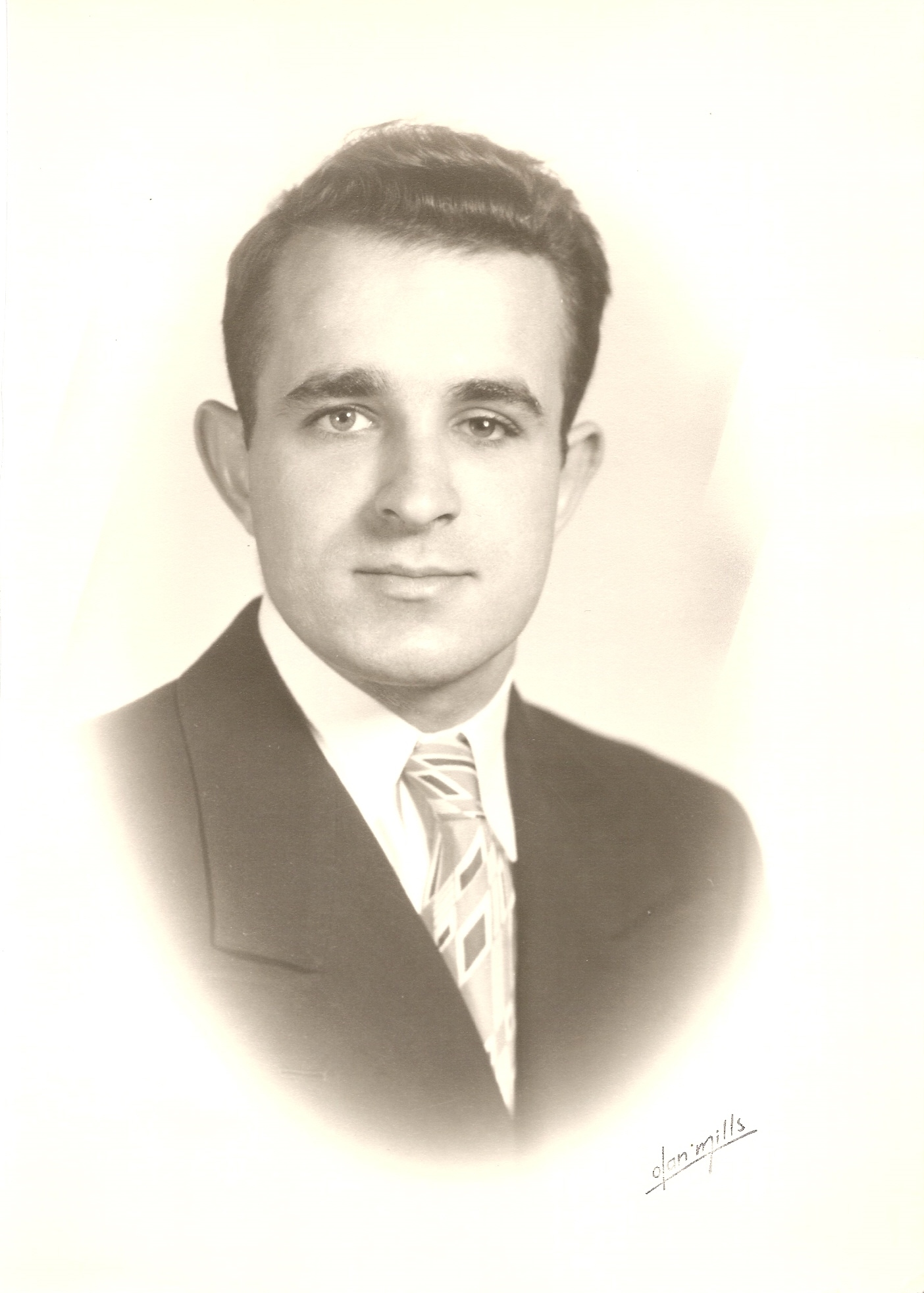TRANSCRIPTION
What are your earliest childhood memories?
My earliest childhood memories start when I'm about 5 years old and Daddy taught all of us kids how to swim in Lake Michigan in Chicago. Also in Chicago, a lady called the police because several of us kids were pulling some bricks off a wall that surrounded the apartment house where we lived. My older brother and I ran in the front door-he ran out the back door and I hid under the bed. I was five. When I was six and lived in Pittsburgh, I took a small bag of marbles from a Woolworth store, and got caught by the manager. Once when I was seven, a neighbor lady gave me pansies to take home to my mother, and my brother and I walking down to the hobo jungle in Pittsburgh. Then when I was eight and lived in Springfield, New Jersey I disturbed a bees' nest, and they chased me several hundred yards, then my mom spent forever taking the stingers out of my head and arms. Also in Springfield, when I was nine; we climbed a farmer's apple trees and stuffed my tucked shirt with apples. We were caught and scolded by the farmer-he had something to back him up in the form of a large German Shepherd dog, who treed me and two or three friends. Going ice skating, skiing in Springfield, New Jersey, and sledding on our Flexible Flyer sleds, throughout my pre-teen years. I remember me and my brothers and our friends would get those sleds, the Cadillac of sleds, and hide in the bushes waiting for older guys sledding down the hill with their dates. We would then jump out, sled down, catch up to them and speed past them hooting and hollering. It was heartbreaking to leave those sleds behind when we moved to Texas.
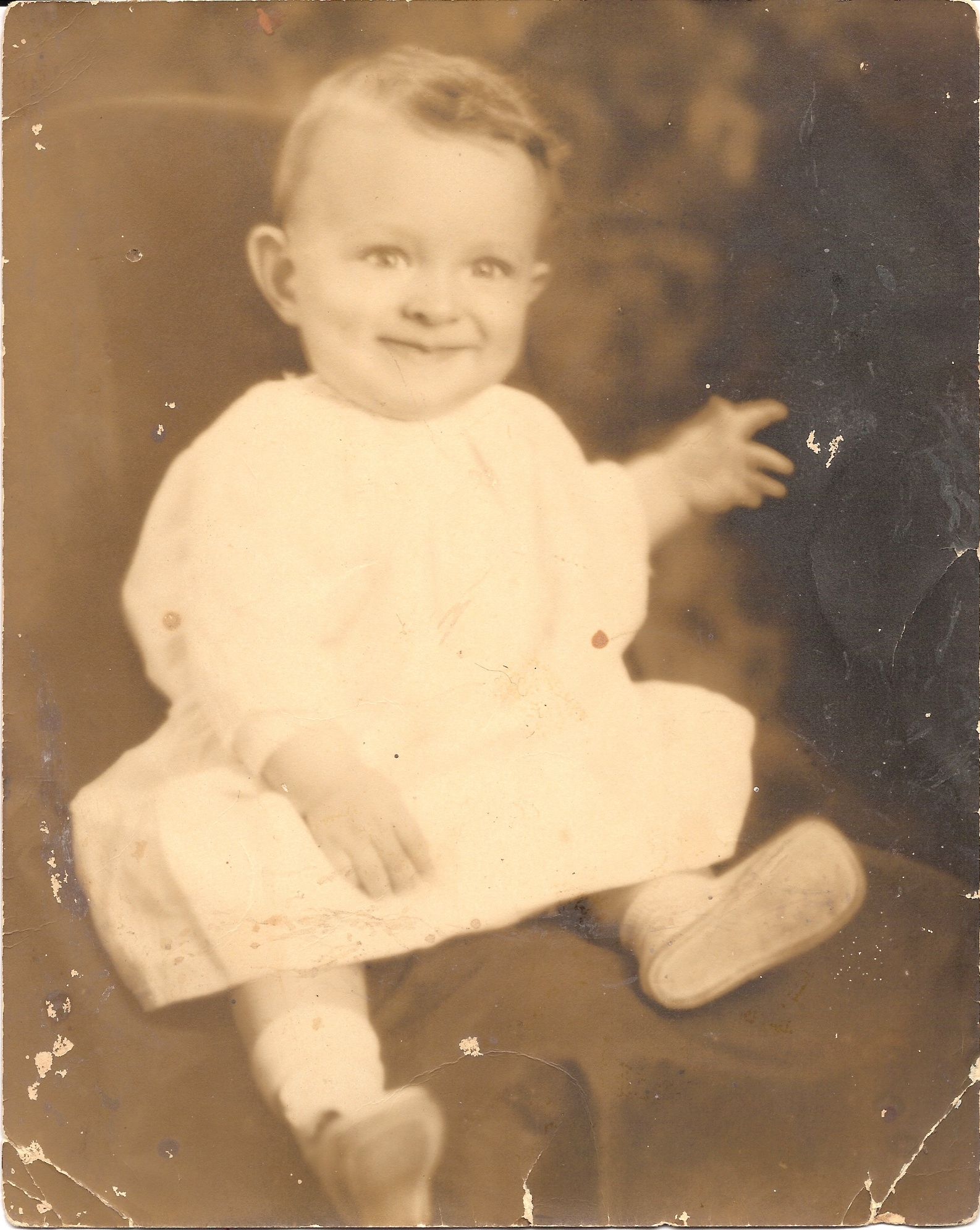
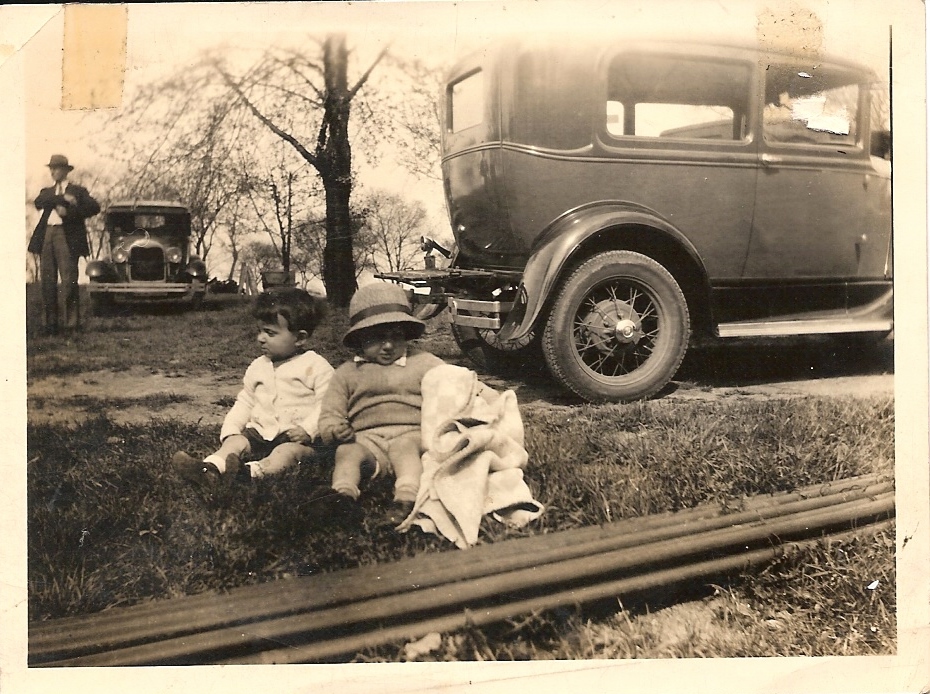
What did you have in your closet?
What did I keep in my closet? When I was a kid, closets were used primarily for clothes and shoes. During those war years--you could not buy leather shoes. Everyone took shoes to shoemaker for new soles or heels when they wore out. As I recall, we had one pair if dress shoes and one pair of tennis shoes. Changes of clothing were pretty much okay--usually had several pair of khaki long pants (no jeans), sport shirts (few t-shirts except for white tees worn almost like underwear). Few toys were available for us. We had a ball, a bat, a toy truck or two, and a toy airplane. Most kids back in the 30's and 40's made our own fun playing cops and robbers, cowboys and Indians, hopscotch, and many other outdoor games.
How old were you when the war started?
I had just turned thirteen the month before...
When did World War II start?
Circa September 1939 with the German invasion of Poland, but America did not enter the conflict with Japan and Germany until several days later after Congress passed a Declaration of War.
Were you aware of the reason they were fighting?
The Japanese bombed Pearl Harbor on December 7, 1941. It was felt by many that it would not be very long before we would be involved in the war because the Germans were already over-running Europe. The Japanese bombing of Pearl Harbor was just the last straw and accelerated our involvement.
What were you doing when you found out about the bombing on Pearl Harbor?
I was throwing a football back and forth with a friend out in the street in front of my home. My mother came running out and said she had just heard it on the radio.
Describe a typical day as a child growing up in the 1930's and 40's...
Playing with friends, going to school, playing sports, working part time jobs, including a number of years as a paper boy...and doing what all teenage boys do...chasing girls.

How was school life during the war?
For the young teens like myself, there was actually little change---not much discussion in or out of class about the war. When you are in your early teens, most are so self-absorbed their attention and time was mostly focused on themselves.

What were some of the popular movies/ cartoons that came out during WW 2 ?
Most popular movies at that time were carry-overs from the late 30s and very early 40s--such as Gone With the Wind and others from 1939. Color films began about that time too. Cartoons were and still are popular---Tom and Jerry, Bugs Bunny, Wiley Coyote and the Roadrunner, Mickey Mouse, etc.
What was the media like with relation to the war? What about compared to this war?
It was totally different than it is today. There was no television. Radio and newspapers were about the only source of information. What news you did get sometimes took weeks for it to circulate among the people. Too, there were no computers, etc. as technology had not yet advanced to where it is now.
You said your father was an FBI agent. What did he do during the war and just prior to the war?
In 1939 he worked undercover at a bomb site factory in Brooklyn, New York where they ultimately identified and captured several German spies. In October 1941, he was transferred from the Newark, New Jersey FBI office to the San Antonio, Texas office. During the war years, from 1941 until mid-1945, all FBI agents were actively involved in identifying draft-dodgers and others who were determined to disrupt the war effort. Beyond those years , he worked on a number of kidnapping cases, bank fraud and embezzlement cases and other criminal activities. He always said that he was in a business that never had a down year.

What are your thoughts on the polio outbreak?
The first indications that I had of the polio outbreak was in 1946 when the schools in Alamo heights were dismissed in April 1946--6-7 weeks before the normal summer break. High school seniors had their graduation ceremony over the radio. I had a classmate who died of polio. At that time no one knew what caused polio, nor did they know of any cure or protection from getting it. Most people avoided crowds and close contact with other people for fear of getting the disease.
What were victory gardens and their purpose? Did your family have one?
A victory garden was just a way to grow your own vegetables in your backyard. We had such a garden. People grew them to help with the war effort because certain foods were difficult to get.

Did you ever wish that you were old enough to enlist?
During the war I was much too young to be concerned...I was thirteen when it started and seventeen when it was over.
What affected you most during the war?
Being a kid, it didn't really affect me that much. Probably, parents of some of my friends were serving in the military and news of some that were killed was disturbing. The thing that affected us most was rationing of many items.
How did the rationing of supplies affect you and your family?
We had stamps of various kinds that were allotted to people to limit the amount of things each could have--such as meat, gasoline, sugar, coffee, automobile tires, and other items. My mother made sure that each of us had only their share of sugar by dividing it into smaller bags for each of us and when our sugar was up, it was too bad so sad. Many people resorted to eating horse meat. Gasoline rationing was controlled by stamps identified as "A", "B", and "C". Those who got the highest gas allotment was based either on a person's occupation or they were essential to the war effort. The general public got the least gas. As my father was an FBI agent, his need for gas was critical, so we had more gas than most people. I still have an old gas stamp booklet with several pages of stamps. For me it is a reminder of those times... My brother bought a car for $12 (which did not run most of the time). We had to push it to get it started. That proved to be extremely tiring and frustrating. So one day we took it to the top of a hill, started it, and jumped off and let it go. It knocked down several small trees, jumped a street, and landed in a creek bed. Then a man came along and bought only the tires for $25. We left the car in the creek bed.
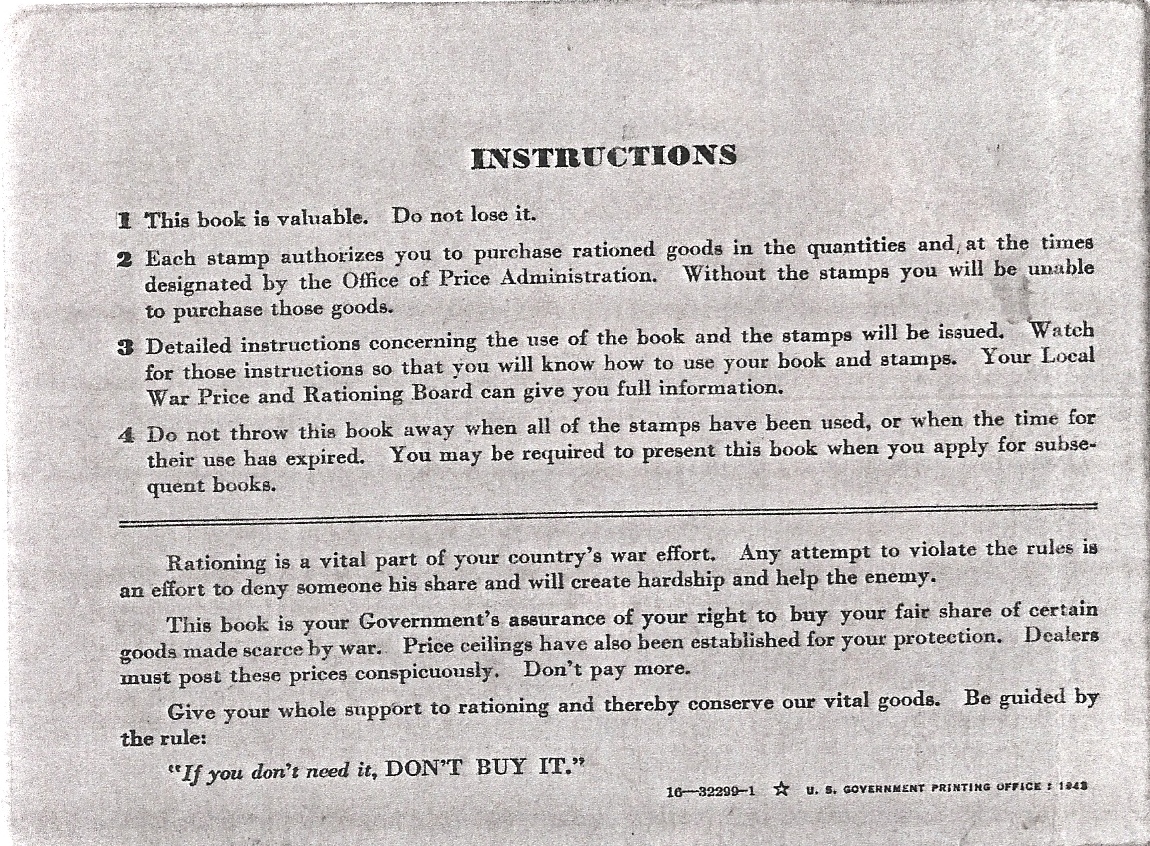
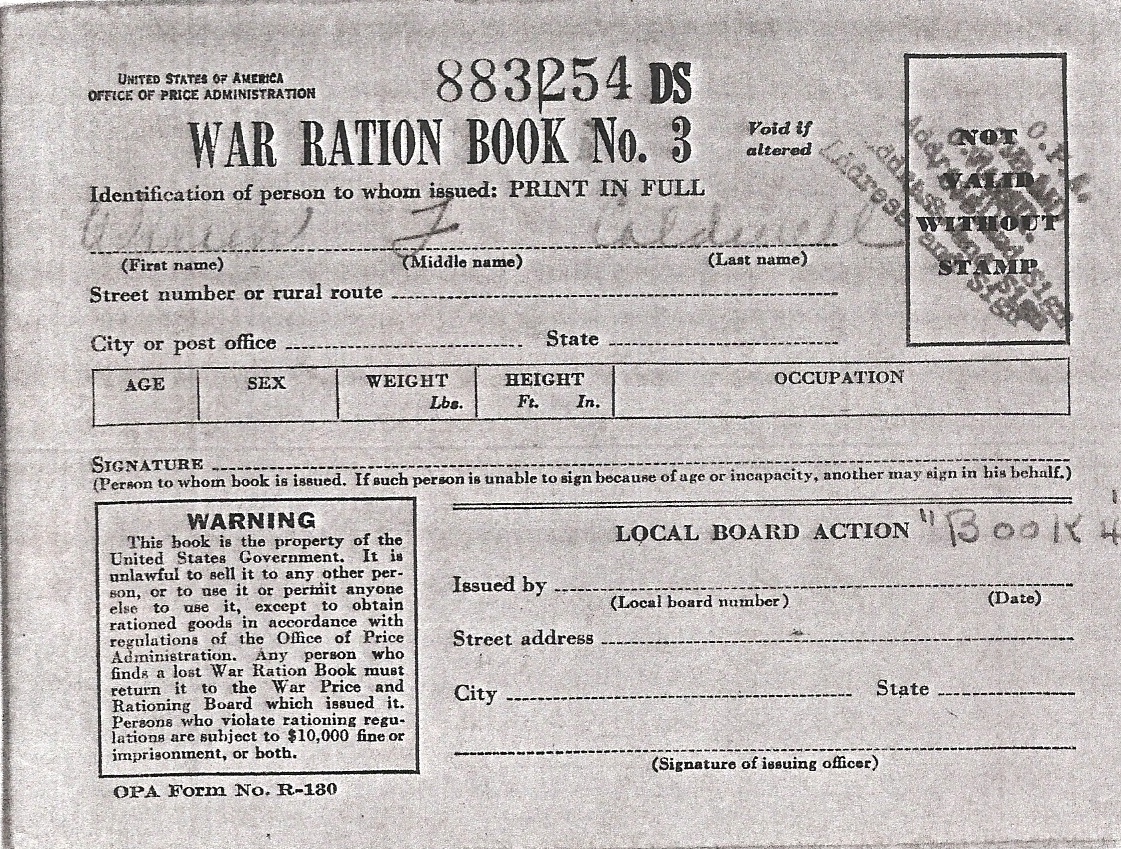
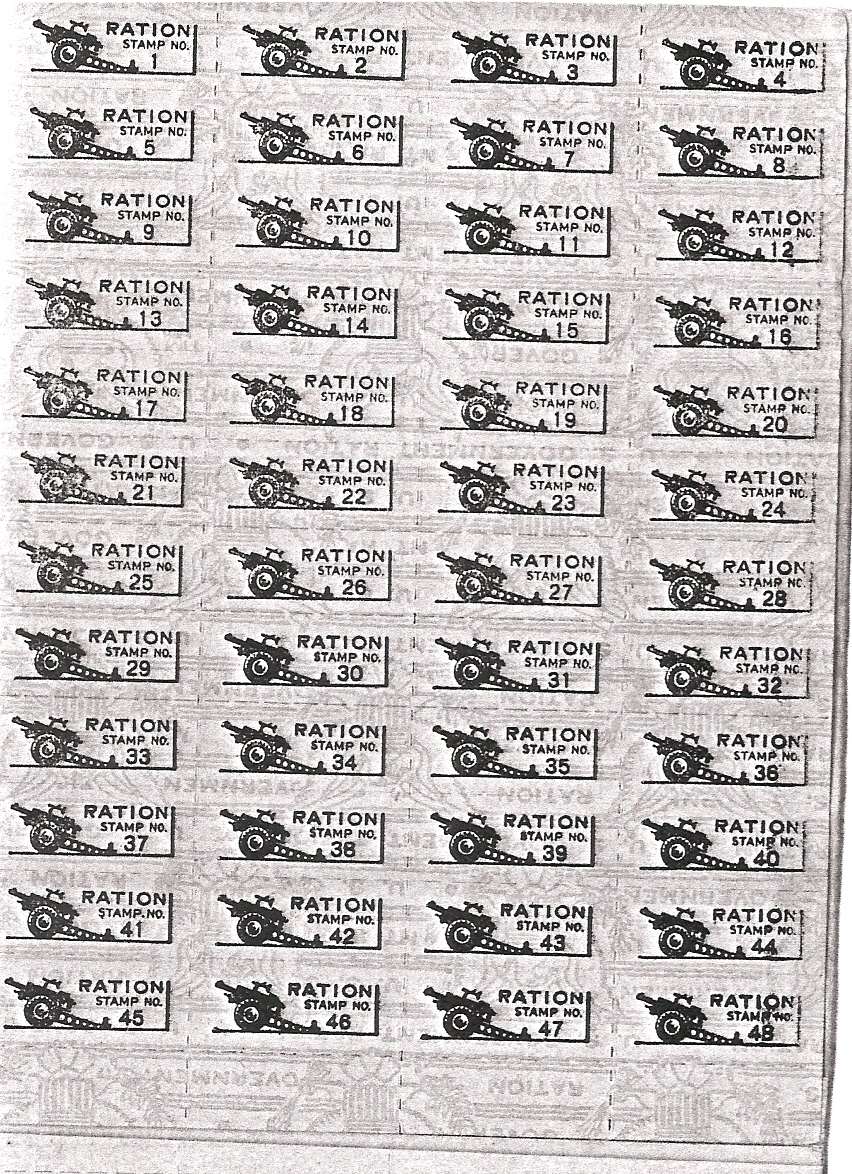
What was traveling like?
Gas was cheaper (30 to 35 cents per gallon)-- cars did not have A/C ( you drove with the windows down in the summer months)--you only had radio, no c/ds or tapes--all cars had only manual shift--the heater was inside the car, mounted on the passenger side. There were few, if any, motels (small cabins here and there and few of those). We had to stop to get something to eat--no fast food places. San Antonio to Dallas was a 7 hour trip.
How about the roads?
Roads were almost always 2 lane--no freeways at all. The first freeway in the USA was built in 1938-1939 in Pennsylvania to go across the Appalachian mountains on the way to Pittsburgh from near Philadelphia. Most roads were black-top. We had to drive through a lot of small towns that are now bypassed by freeways.
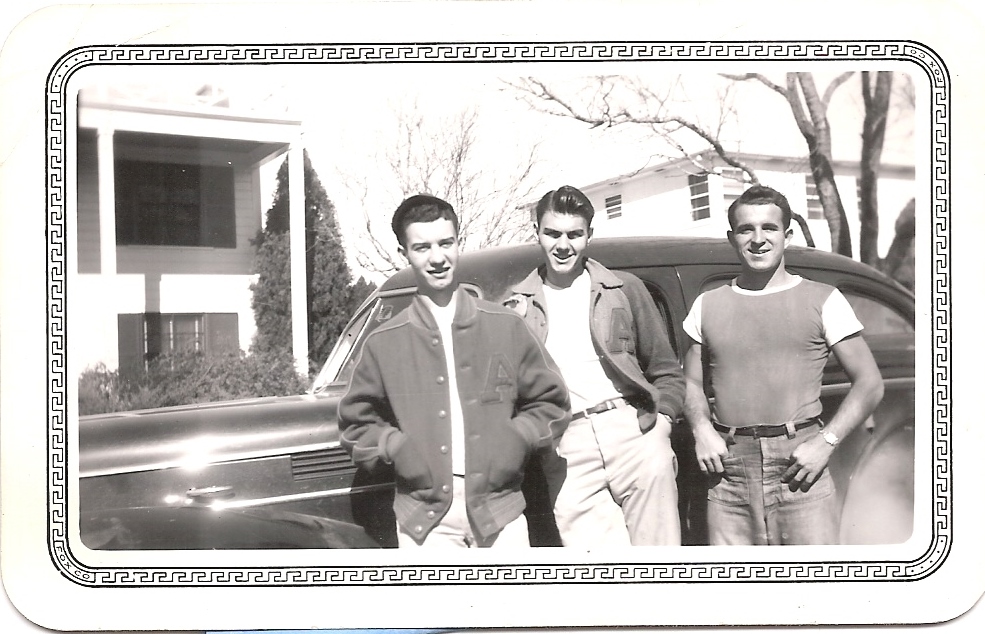
What did you do when you found out that the war was over?
Myself and several friends went to downtown San Antonio--along Houston Street and in front of the Alamo. Whooping it up, screaming and generally celebrating. Most every guy and girl were hugging and looking for somebody to kiss.
What did you do with your life after the war was over?
I finished high school, registered for the draft and began my first years of college.
Were you ever called up for the draft during the Korean War or the Vietnam War?
Yes, I was called up for the Korean War in late 1950. The draft at this time required all men age 18-35 to register for the military draft. My worst recollection was the physical exam they put you through. It is no fun standing in lines of 40-50 guys while doctors and nurses examine your body. Fortunately, I was deferred through college and never had to serve. The Vietnam War began in the mid-1950s and ended in the early 1970s. I was married most of this time. Because of this and my age I was no longer desirable as draft material .
How is life during World War II different than life during this war?
The main thing that I notice about World War II versus the current war is the lack of involvement by the general public. The World War II lasted 4+ years and the current war is heading towards ten years. Generally, people have become immune to information about the current war. During World War II the whole country was totally involved. Teens and others collected tin foil and tin cans and things of that nature to try to help with the war effort. They spent almost every Saturday to help out to collect these items. They cheered the good news and cheered when news of the enemy being defeated was heard. Patriotism was everywhere and there were few detractors of our involvement in the war. It was a time when almost all of us were proud that America was number one.
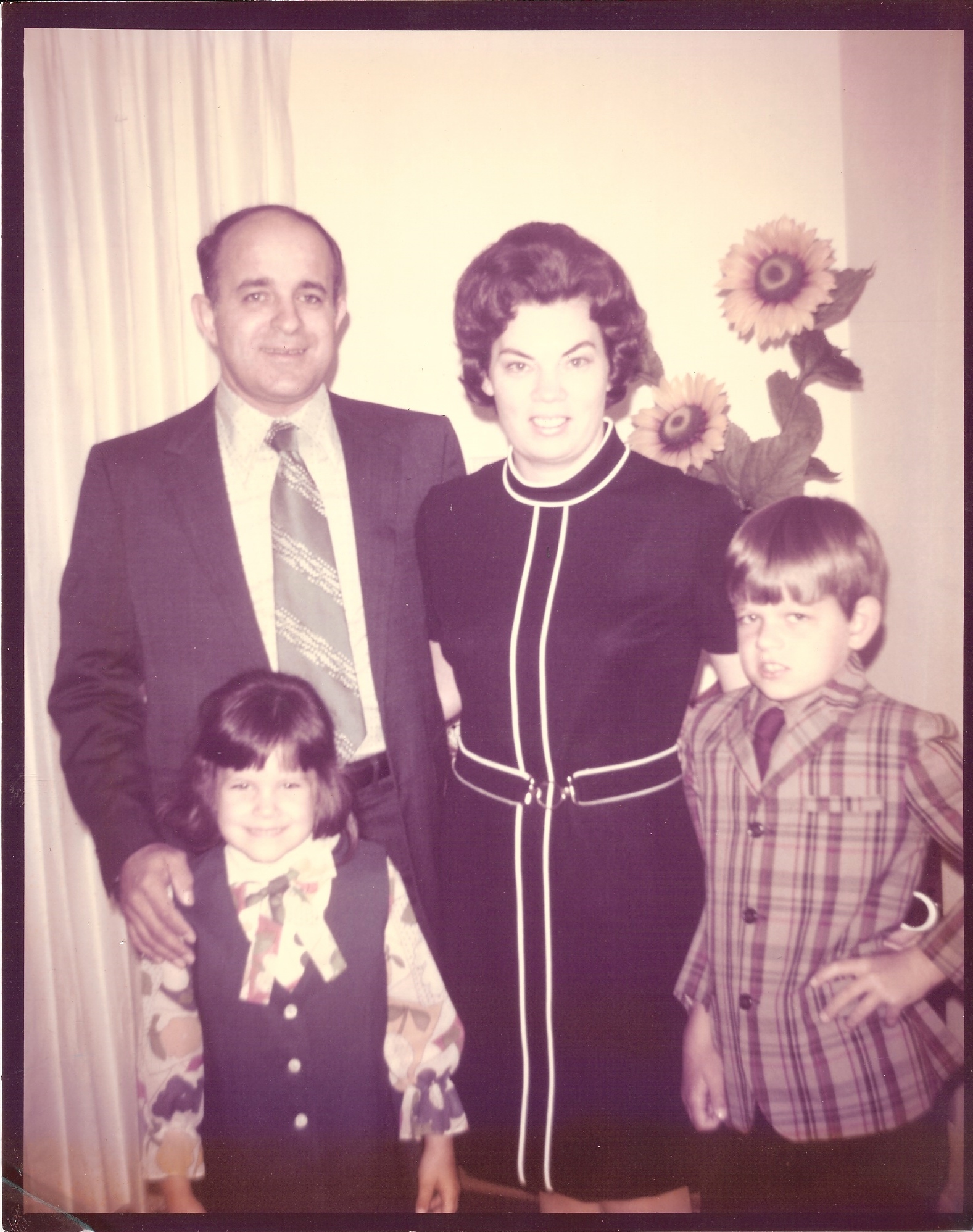
Were there any other historic happenings?
Sure--like the John F. Kennedy assassination in Dallas in 1963, the assassination of his brother Robert in 1968, Martin Luther King in 1968. The Korean War, The Vietnam War, The Charles Lindbergh Jr. kidnapping in 1932, The crash of the Space Shuttle, Columbia, in 2003.
Did you celebrate VE Day or VJ Day?
Most, including me, celebrated only VJ Day as VE Day did not really signal the end of the US involvement in the war. We were still at war with Japan until VJ Day in August 1945. VE Day was in May 1945.
What did you listen to on the radio?
I mostly listened to Jack Benny, Bob Hope, The Shadow, The Green Hornet, Batman, Gunsmoke, Superman, Dr. IQ (a quiz show that paid a whopping $64 as its top prize).
Were you and your families ever in danger because of your father's job?
No not at all. My Dad seldom discussed his job except in very broad generalities.
Did you ever want to be an FBI agent
No, for one basic reason---too much secrecy and too much time away from home. As I mentioned, my Dad worked undercover several times which kept him away for 6 months to over a year.
Do you regret never being able to serve your country in the war?
Not really--for the four wars that have involved the USA during my lifetime, I was either too young, in school or too old.
What is the hobo jungle?
A hobo jungle was a term used back mostly in the 30s. In reality, it was the homeless of today. In the 30s, they existed because of a carry over of the Depression. They were poor or hungry--not on drugs, alcohol or mentally ill as many of the homeless are today... the hobos seemed to share what little they had with each other. They cooked their meals in tin cans or old pots over open fires. Some toured the nearby neighborhoods asking for odd jobs--few were looking for handouts.
What is your most favorite part of traveling?
I guess the excitement of new places -Some are places you have been before, but you can always find something different on return trips. Broadway shows, football or baseball games, a zoo or library, stores, gardens, rivers, the ocean--you can go on and on.
What did you enjoy most about your life?
That would be extremely difficult to encapsulate in any single answer. Just like anyone else, my life is made up of childhood, teen age, young adulthood, middle age and older age. Each has its own joys in different ways. I guess if forced to single out any one age, it would be middle age with a happy marriage, children and a satisfying , challenging career.
How cold was it in Chicago?
It is called the Windy City for good reason. It sits on the shores of Lake Michigan, so in the winter there is lots of ice and snow along with the bitter cold.
What was it like to go with your father to get draft dodgers?
Interesting, but not in the fun sense of the word. Many times I felt sorry for the young men that had to be hauled into jail because they did not report for military duty as was required by law.
Was crime just as bad back then as it is now?
There was less crime, but there were a lot fewer people. Guess the biggest difference was the notoriety given some real bad guys who became household names--like John Dillinger (in Chicago where we lived in the early 30s), Pretty Boy Floyd, Babyface Nelson. As well as Bonnie and Clyde, Machine Gun Kelly. Ma Barker, Scarface Al Capone. My Dad participated in almost all of these cases.
Did you get in a lot of trouble for the things you did during your childhood?
I had my share of whippings (spankings) for many of the crazy things I did, but I was no nuttier than most of the kids. We had lots of fun with lots of activities--did not have TV or electronic gadgets to entertain us, so chased all over the neighborhoods playing games
It seems that you were quite mischievous , which of these activities was the most fun?
Hard to point to just one or two---climbing telephone poles to touch the wires to hear the little girls scream, stealing apples from an orchard, sledding and ice-skating in the winter, fishing in a nearby creek, putting pennies on a railroad track so the trains could flatten them out more, playing street baseball, shooting fireworks. All were fun and I do mean in that sense of the word FUN.
What other item of interest does your grandfather have? Has he ever had these items (Hoover letter, etc) appraised?
The only other item that I have is a vase dating back to 1789 and a Machinists ' Handbook written in 1914. . My Dad was a Machinist when he was a teenager as he had to drop out of school to help the family financially. He got his education through correspondence courses then worked for Westinghouse for two years before he joined the FBI. He was a dedicated amazing man. He never had the Hoover documents appraised.
Is there anything else you would like to add to this interview?
In closing, I would like to say that I love the interviewer. She is a fine decent person who has a good future ahead of her, and I wish I could be here to see it all.
